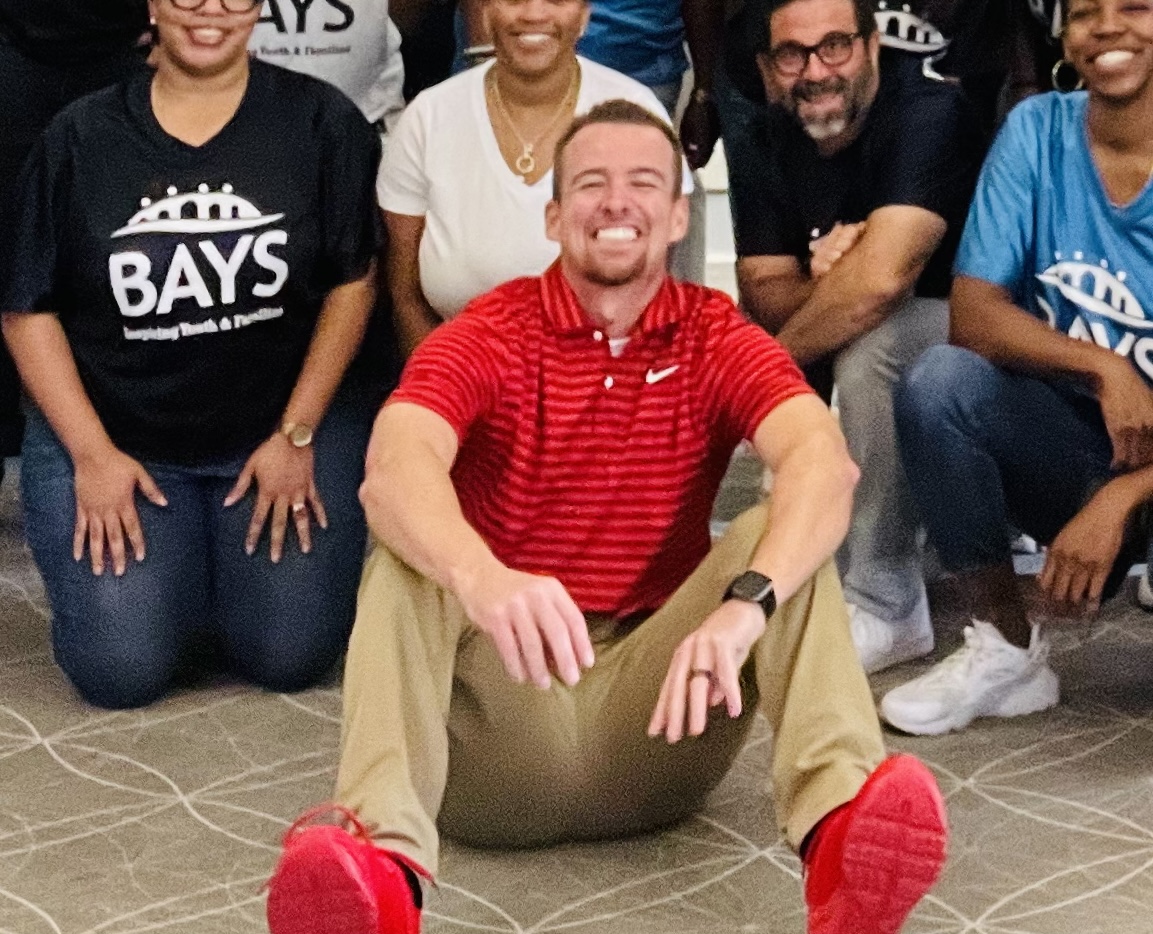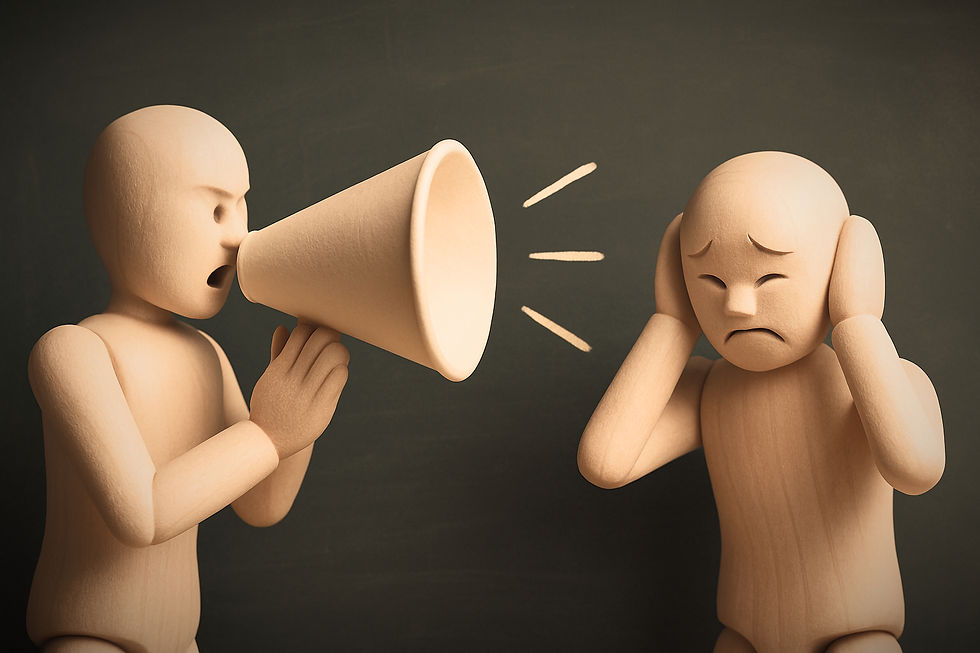Empathy and Self-Care: Understanding the Magnitude of Managing Feelings in Relationships
- Curtis Campogni

- Jul 13, 2023
- 4 min read
Updated: Aug 4, 2023
"It's me, hi, I'm the problem, it's me. At teatime, everybody agrees." – Taylor Swift.
We all have work or personal relationships where you must collaborate with the other person to complete a larger goal.
But what if they attempt to manipulate or trick you into believing they have your best interest at heart each time you interact?
What if instead of working towards a common goal, they were trying to get what they want, regardless of how it might affect others?
Perhaps they project kindness and teamwork, but as Taylor sings, they change their tone when talking with others. (teatime)
In this scenario, should you practice empathy? Do they deserve an empathetic approach? Is all empathy the same?
Understanding the different variations of empathy is crucial to maintaining our mental and emotional well-being in today's fast-paced and polarizing world. In a society where people are sometimes more concerned with feeling right than being right, it can be easy to experience mental fatigue, frustration, and emotional exhaustion.
While empathy allows us to connect with others on a deeper level, it is essential to understand the importance of defining what approach to use to protect ourselves from abandoning an important relationship or experiencing burnout. In addition, we must be honest with ourselves about our confidence and strength to demonstrate empathy in each situation.

Without honest and transparent self-reflection about our intentions, we use blanket expectations to describe our behavior. Statements such as, "I was trying to be empathetic," "I am speaking my truth," or "I have no sympathy for them," are too general and do little to help the person we are co-dependent on. Honest self-reflection, however, allows us to establish guidelines for what is acceptable and what isn't in our relationships, work, and personal lives. It recognizes and honors our needs, feelings, and limits. We create a healthy balance between offering empathy and caring for ourselves by setting realistic expectations.
Anytime I conduct a workshop on empathy, it is a topic that one moment reaches a unanimous consensus and then quickly spirals into division and disagreement. People will go from supporting a more empathetic culture to debates on whether empathic tools warrant effort in each situation.
So, why does empathy cause such varying reactions? Why can I write an entire blog on the importance of empathy yet identify people in my personal life that I don't believe warrant an empathetic response due to their self-serving choices and behaviors?
When I speak about empathy in terms of helping others, people typically agree with its effectiveness. When I discuss empathy in working with difficult people, you argue about its worth. This is because collaborating with difficult people causes us to question ourselves and can make us feel inadequate and under attack when our attempts to better the situation fail.
Worse, sometimes we can't fall asleep at night because our mind is racing with questions like:
"Am I doing the right thing?"
"Why do they think they can speak to me like that?"
“Why are they doing this?" "
"Why am I so angry?"
Often, we have thoughts like these because we have chosen an approach that doesn't align with our reality. We tell ourselves that "B" will happen if we do "A." But when it comes to relationships, the other person always has the final say over their behavior. Thus, understanding that we can only control ourselves is essential to our mental well-being.
When practicing empathy, you can implement two primary types: Cognitive and Emotional. Cognitive empathy lets us comprehend someone's perspective, while emotional empathy lets us experience their feelings. These two approaches can be a blessing and a burden because constantly absorbing the emotions of others without limits can be overwhelming and detrimental to our well-being, whereas rejecting someone's emotional language strictly to "perspective take" can come off as cold and investigative.
Still, acknowledging our emotional capacity and recognizing that it is okay to prioritize our mental health is crucial and can give us the emotional strength needed to take on someone else's feelings.
Choosing cognitive empathy allows us to seek understanding, but not at the cost of our emotional stability. This is because cognitive empathy does not require us to agree, justify or sympathize with someone's emotional state but rather seek to understand the world from their perspective.
Taking this approach when you are in an emotionally triggering situation or relationship can allow us to remain levelheaded and psychologically safe. This is why the flight attendant instructs you to put your oxygen mask on before helping others. If you can't breathe clearly, you can't help the person beside you breathe freely.
In our professional lives, empathy is crucial to avoiding compassion fatigue and losing sight of our purpose. It allows us to be active listeners, create a compassionate workplace, and empower others to take ownership of their choices. This not only leads to increased job satisfaction but also helps prevent burnout.
In personal relationships, empathy enables us to be self-aware of how we are feeling while still being there for our loved ones. It is important to communicate our needs, establish limits, and be assertive in protecting our emotional well-being. Emotional empathy helps foster healthier connections with others and avoid feelings of resentment or being overwhelmed.
Remember, choosing the type of empathy you provide is not selfish; it is an act of self-care and self-preservation. It allows us to extend support without depleting ourselves emotionally.
We can continue supporting others while valuing our needs and protecting our well-being while working towards a common goal. Ultimately, not only is the world better when we choose empathy, but identifying the type that can best help someone without depleting our ability to help others in the future is life-changing.
Disclaimer
*Statements on this blog reflect the author's personal opinions and do not represent any other person, company, or organization. The purpose of this blog is general knowledge and to bring awareness to tools, techniques, people, and organizations that bring about positive change. The reader is strongly encouraged to perform independent research about the topics discussed.




Comments